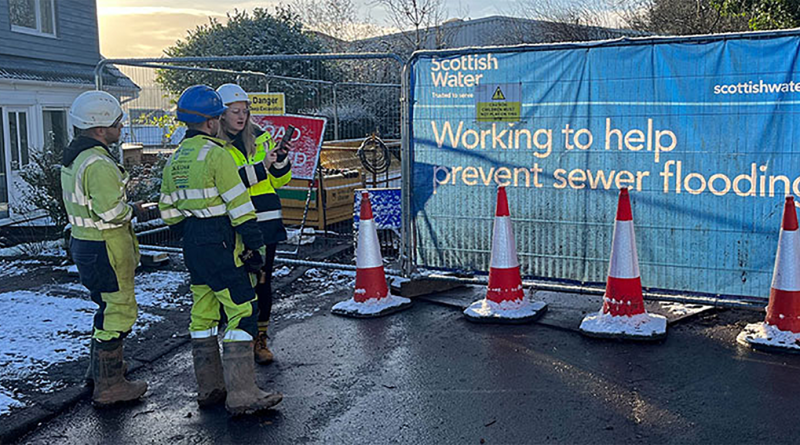How AI Can Attract Gen Z to Address the US Construction Labor Shortage
By Shelley Copsey
The US construction sector will need to attract more than half a million additional workers to combat the ongoing labor shortage and keep up with today’s ongoing demand.
The shortage is heightened by an aging workforce, with more than one in four construction workers aged 55 or older. As experienced workers begin retiring, the industry must find ways to entice the next generation of workers into the trade to fill these gaps.
At the same time, Gen Z enters the workforce. Their interest in the construction trades has increased in the past years, presenting the opportunity to fill the holes in hiring. The promising career growth trajectory, competitive wages, rising costs of attending university, and new technologies are a few of the factors drawing the next generation onto the worksite.
Above all, they want to work with cutting-edge technology. According to a survey by Adobe, 70 percent of Gen Z respondents indicated they would leave their current role for a job that offers better technology.
Let’s look at a few ways AI can bring more Gen Zers into the field and create a more engaged and productive workforce.
Technology as The Gateway
Gen Z has notoriously been dubbed ‘The Internet Generation.’ Many have never lived their lives without technology at their disposal.
While older generations may be uncertain about the benefits of new tools like AI in their workflow, younger generations want to embrace it. About 85 percent of Gen Z respondents already bring their own AI tools to work, according to LinkedIn and Microsoft’s 2024 Annual Work Trend Index Report.
AI is poised to transform the construction industry, offering solutions that enhance safety, efficiency, and productivity. Thirty-three percent of utility companies globally have incorporated AI into their operations since 2023. We’re not just improving effectiveness; we’re creating an environment that resonates with Gen Z’s technological expectations.
AI-driven tools replace the need for pen-and-paper processes. Take a site risk assessment for example. Instead of manually assessing the potential risks of a worksite, from machine hazards to environmental implications, AI can continuously monitor conditions by analyzing visual and audio data captured by workers in the field.
Equipping field workers with up-and-coming AI technology will help show prospective employees that the organization values both efficiency and growth. In a larger sense, it demonstrates that the overall field can evolve with a tech-driven economy.
Offer continuous learning and development
Gen Z is looking for more than a paycheck. They want continuous skills development and clear career advancement opportunities. One study found that 74 percent of millennials and Gen Z have considered quitting their jobs due to a lack of skill-building opportunities.
Organizations need to replace traditional training methods, like outdated PowerPoints and passive training sessions, with always-on skill building. AI can create personalized, on-demand learning experiences tailored to each worker’s needs and pace.
Picture this: a worker has a question on the job about how to operate a piece of equipment. Instead of phoning their manager or flagging down an occupied coworker, they can tap on an AI buddy on their mobile device for assistance. They may be prompted with a microlearning module to provide them with a solution backed by insights on the spot. During lulls in the workday, employees can access learning and development courses to upskill.
With AI, field workers can simulate real-world scenarios, introducing them to hazards in controlled environments so that when they occur on the job, they know how to respond. AI can then track users’ progress in real-time, providing feedback to ensure continuous improvement.
With these tools, Gen Z employees can grow and better establish themselves at the beginning stages of their careers. By continuously learning, they can eventually advance and climb the ladder toward promotions.
Bring purpose and sustainability values forward
Gen Z wants to know that their work is meaningful, while consciously making the world a better place. About 86 percent of Gen Z reported that a sense of purpose is one of the most important aspects of their overall job satisfaction, along with environmental sustainability.
AI is reinventing our typical workflow, and sustainability is a positive byproduct. These types of digital solutions can help reduce the amount of time wasted on the job. They can also confirm whether or not a specific number of supplies is needed now while predicting future needs.
The need for paperwork is significantly cut as different deliverables like blueprints, permits, and schedules are stored within a platform. Tracking progress in tandem with the worker’s output, AI algorithms can reduce the need for rework, alleviating additional carbon emissions.
Combined with greener practices, a sense of completion at the end of the workday is a huge motivator for Gen Z employees. AI enables them to work more productively and efficiently and, as they solve real-world problems, they feel empowered to tackle them confidently.
With AI, the construction industry can attract and retain tech-savvy Gen Zers. Embracing these advancements will not only address the labor shortage but also pave the way for a dynamic and future-ready field.
For a list of the sources used in this article, please contact the editor.
Shelley Copsey
Shelley Copsey is CEO and Co-founder of FYLD, an AI-powered, fieldwork execution platform that enables utilities and infrastructure managers, contractors, engineers and fieldworkers to achieve operational efficiency and sustainability in a safety-focused environment.
